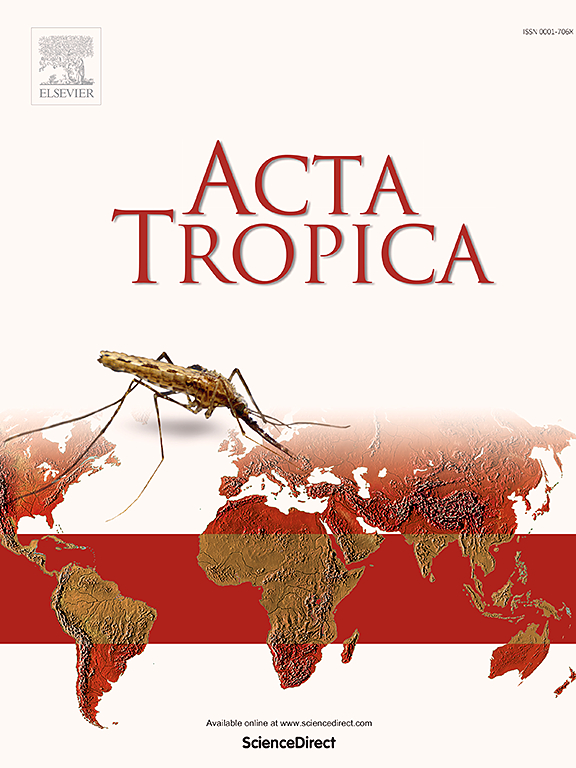Cost-effectiveness of dengue control strategies in Bangladesh: An optimal control and ACER-ICER analysis
IF 2.1
3区 医学
Q2 PARASITOLOGY
引用次数: 0
Abstract
The prevalence of the dengue virus in Bangladesh is extensive, significantly contributing to both illness and death. Managing outbreaks of dengue fever poses a challenge in tropical regions like Bangladesh, where consistently warm temperatures allow mosquitoes to breed and the virus to proliferate. This study introduces a deterministic model with four compartments to represent the transmission of the dengue virus, with parameters estimated using the 2023 outbreak data in Bangladesh. Utilizing the next generation method, we calculate the basic reproduction number and conduct sensitivity analysis to explore how various model parameters impact the transmission and spread of dengue in the population. Furthermore, personal protective measures and treatment are incorporated into our proposed model. Numerical simulations are conducted, using the average cost-effectiveness ratio (ACER) and the incremental cost-effectiveness ratio (ICER) to assess the cost-effectiveness of different control strategies, focusing on different control measures with varying cost weights. The findings demonstrate that the combined application of controls avert more infections at a minimal expenses. Additionally, there is a reciprocal relationship between the extent of control efforts and cost weights.
孟加拉国登革热控制策略的成本效益:最优控制和ACER-ICER分析
登革热病毒在孟加拉国广泛流行,严重造成疾病和死亡。在孟加拉国等热带地区,管理登革热疫情是一项挑战,在这些地区,持续温暖的气温使蚊子得以繁殖,病毒得以扩散。本研究引入了一个具有四个区室的确定性模型来表示登革热病毒的传播,其参数使用孟加拉国2023年的疫情数据进行估计。利用下一代方法计算基本繁殖数(Rb)并进行敏感性分析,探讨各模型参数对登革热在种群中的传播和传播的影响。此外,个人防护措施和治疗被纳入我们提出的模型。采用平均成本-效果比(ACER)和增量成本-效果比(ICER)对不同控制策略的成本-效果进行了数值模拟,重点研究了不同成本权重下的不同控制措施。研究结果表明,控制措施的联合应用以最小的费用避免了更多的感染。此外,控制努力的程度和成本权重之间存在相互关系。
本文章由计算机程序翻译,如有差异,请以英文原文为准。
求助全文
约1分钟内获得全文
求助全文
来源期刊

Acta tropica
医学-寄生虫学
CiteScore
5.40
自引率
11.10%
发文量
383
审稿时长
37 days
期刊介绍:
Acta Tropica, is an international journal on infectious diseases that covers public health sciences and biomedical research with particular emphasis on topics relevant to human and animal health in the tropics and the subtropics.
 求助内容:
求助内容: 应助结果提醒方式:
应助结果提醒方式:


